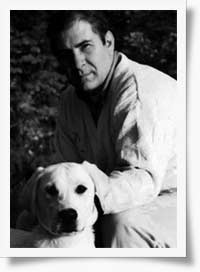
Of all the hundreds of hours of television I have watched this week and of all the comments made by the seemingly endless number of pundits, one comment stays on my mind.
It came from Martin Luther King III as he was being interviewed on CNN last weekend. He was asked to talk about the protests that have followed the killing of George Floyd in the context of his father’s work.
“I thought we were passed this,” he said.
My response was visceral. His comment resurrected a flood of memories.
One of the earliest memories was a classmate who brought a sock to show-and-tell in the sixth grade saying it had belonged to a black man who had been lynched near our small western town a few years before.
I remembered Selma and Montgomery.
I remembered George Wallace.
I remembered Bob Moses, a man of towering integrity who was known in the civil rights movement as the first to walk into danger and the last to walk away.
I remembereded being on the Mall listening to Dr. Martin Luther King, Jr.
I remembered being on the Capitol steps watching the City burn the day after he was killed.
I remembered being on an elevator in the Capitol with the senior Senator from South Carolina who – after hearing conversations reflecting shock and sadness at Dr. King’s death – waited for the elevator to clear and said, “It’s about time someone killed that son-of-a-bitch.”
I remembered being on Bobby Kennedy’s campaign staff and his fight for social justice.
I remembered being in the Senate gallery, watching as the Senate passed the Civil Rights Act of l964 after a dramatic 75-day filibuster dramatically broken when Senator Clair Engle, a Republican from California, too sick to speak, signaled his affirmative vote by pointing to his eye.
I remembered my surprise in light of this history when an African-American was elected to the highest office in the land.
Collectively, my memories told me we had come a long way. So, forgive me if I too thought we were passed all this.
But as I ruminated on the words from Dr. King’s oldest son, I found a deeper meaning and a greater challenge.
Start with the obvious. It’s hard to watch the death of George Floyd. It was a crime against humanity so clear and vicious you can’t help wanting to protest.
But is what we are now seeing the beginning of the end or the end of the beginning?
“Our reliance is in the love of liberty which God has planted in us,” President Lincoln said. “Our defense is in the spirit which primed liberty as the heritage of all men, in all lands everywhere. Destroy this spirit and you have planted the seeds of despotism at your door.”
Lincoln’s words are a reminder that liberty is not just an idea, and abstract principle. Liberty is power – specifically the power to act.
Consider again the words of Martin Luther King III in this context. Is it enough to protest? Shouldn’t we be passed that place?
When will we accept our responsibility for the world we see? When will we accept ownership? Most important, now and always, what are we going to do about it?
Apathy is the enemy. The sad truth is that the actions of this Administration so objectionable to so many would not have happened if many of the people – particularly the young – who are now marching had taken the time to vote in 2016.
Until the energy we see on the streets is dedicated to mobilizing, registering, and getting out the vote, nothing will change. If we truly want justice, if we want America to live up to her promise, we must make it happen.
We must be the change we seek. Ultimately, America is and will always be whatever we are.





